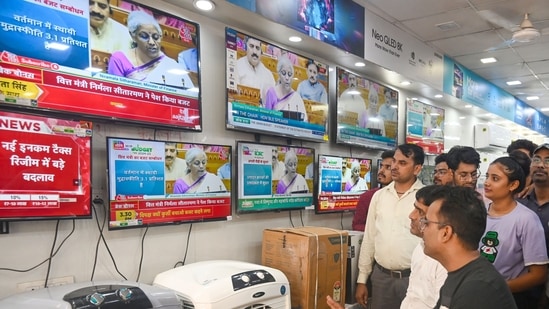
Representatives of the government and its employees have reached a consensus on the contentious pension issue, addressing concerns about post-retirement benefits without reverting to the old pension scheme (OPS), according to two people familiar with the matter.

The agreement, which is still being finalised, aims to safeguard a minimum assured pension for government workers, who have sought a return to the OPS since it guaranteed 50% of the last-drawn salary. “The main work is done, now details are being worked out,” said one person, speaking on condition of anonymity. “After working out the finer details, the committee will submit its report to the government soon.”
The resolution addresses three core apprehensions of employees, according to a second person. “Their primary concern was that they should not be left at the mercy of market fluctuations. The committee has addressed this concern in a suitable manner,” this person explained. Other key issues included factoring in inflation and the duration of service required to become eligible for drawing a pension.
The government formed a committee on April 6, 2023, chaired by finance secretary TV Somanathan, to review the National Pension System (NPS) introduced for state and federal employees from April 1, 2004. The NPS replaced the OPS.
Under the NPS, contributions from both employer (14% of the salary) and employee (10% of the salary) are invested in debt and equity instruments. While it may provide higher returns in the long run depending on market conditions, it does not guarantee a fixed pension amount.
Union finance minister Nirmala Sitharaman addressed the pension issue in her budget speech on July 23, stating, “The Committee to review the NPS has made considerable progress in its work. I am happy that the Staff Side of the National Council of the Joint Consultative Machinery for Central Government Employees have taken a constructive approach. A solution will be evolved which addresses the relevant issues while maintaining fiscal prudence to protect the common citizens.”
The first person stressed that the Somanathan committee, after extensive consultations with stakeholders including multiple meetings with states, has reportedly found a solution to address the “uncertainty” element in the NPS. This will help retirees to be certain about their minimum pension amount after retirement.
“The old pension scheme is not viable, financially unacceptable and not feasible,” the person added. “If OPS is restored, it may be beneficial to employees, but it will be extremely harmful to the common citizen. Because larger-and-larger share of the government’s budget will go to the government servants rather than to the citizens. Almost a substantial share of the budget will be swallowed by salaries and pensions.”
The committee is working on a formula that would provide a certain amount post-retirement, some compensation for inflation, and may propose a minimum pension for employees who take early retirement. However, the recommendations of the committee are not binding on the government, which may accept, reject, or modify them.
The pension issue has become politically polarising, with several opposition-ruled states reverting to the OPS for their employees. States such as Jharkhand, Punjab and Himachal Pradesh have made this decision, despite concerns about fiscal sustainability.
As of December, there were 6.79 million retirees, including those from military forces, drawing federal pensions in India. Currently, there are 8.7 million federal and state government employees contributing to the NPS.
Under the current system, employees contribute 10% of their basic salary, while the government pays 14% to a pension fund. The final payout depends on returns from that fund, which is mostly invested in government debt instruments.
Soumya Kanti Ghosh, group chief economic adviser of State Bank of India, has warned that the old pension scheme is fiscally unsustainable and could worsen the debt of state governments. In the 2023-24 fiscal year, India’s federal pension budget was ₹ 2.34 lakh crore, according to a policy note.